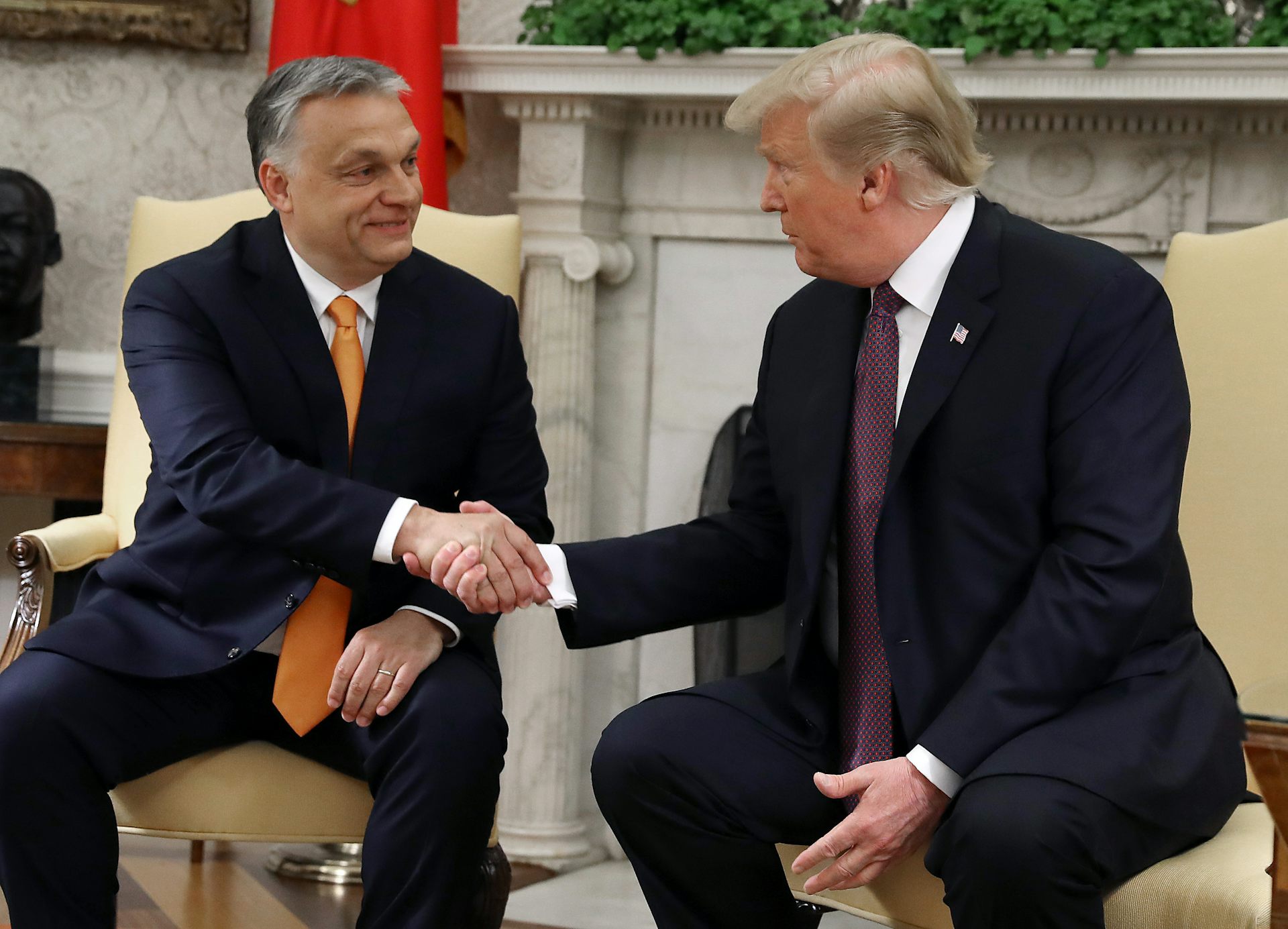Trump, Defiant On Tariffs, Claims Trade Deals Are In The Works

President Donald Trump barreled forward with his ongoing trade war Tuesday, saying that his administration is making progress toward deals with international partners in an effort to calm markets and show that his tariff plan is working.
As those markets enjoyed a small reprieve Tuesday morning, Trump and Treasury Secretary Scott Bessent previewed what they claimed would be major deals coming in the next few days between the U.S. and South Korea, Japan and Vietnam, as well as other “big trading partners.”
Trump’s aggressive plan, which has sparked historic market chaos and inspired panic on Wall Street and beyond, hinges on the willingness of trading partners to negotiate to escape the brunt of the sudden, heavy import taxes. While the president is claiming early wins by floating what he says will be major deals with certain partners, those deals have yet to materialize — and major economic players like China remain resolute in the face of Trump’s aggression.
In a post on Truth Social Tuesday morning, Trump claimed that a “great deal” between the U.S. and South Korea was imminent after holding a call with the country’s acting president. Trump said that South Korea, which he slammed with a 25 percent tariff, would fly a team of negotiators to the U.S. to finalize “the confines and probability of a great DEAL for both countries.”
South Korea, Trump claimed, is not alone in wanting a deal.
“We are likewise dealing with many other countries, all of whom want to make a deal with the United States,” Trump wrote in a Truth Social post.
Bessent also separately told reporters that multiple “big trading partners” would be making deals to avoid tariffs soon.
“We have one of the Vietnamese officials coming in this week, the Japanese are very eager to get over and I think you’re going to see a couple of big trading partners do deals very quickly,” Bessent told reporters Tuesday.
White House press secretary Karoline Leavitt told reporters during a briefing Tuesday that the deals would be "tailor-made" to each country, rather than "off-the-rack" agreements.
"I think the president is going to have a custom, tailor-made approach to each and every country," Leavitt said. "If that means discussions of foreign aid, of our military presence in these countries, how the troops are paid for — come to the table and that can be part of the negotiation."
According to Leavitt, nearly 70 countries have reached out seeking to negotiate with the administration on tariffs.
But not all countries affected by Trump’s sweeping tariff policy have capitulated to the president.
China has taken a swift and strong approach to Trump’s move, refusing to surrender to what it has called “blackmail” by the U.S. president. Beijing immediately retaliated against Trump’s 34 percent tariffs, lashing back with a reciprocal levy, which Bessent has called a “big mistake.”
In response, Trump on Monday threatened an additional 50 percent tariff to take effect Wednesday.
In his Tuesday Truth Social post, Trump seemed to suggest — though he offered no evidence — that China is ready to come to a deal.
“China also wants to make a deal, badly, but they don’t know how to get it started. We are waiting for their call. It will happen!” he wrote.
Just a few hours prior, China’s commerce ministry said it would “fight to the end” and take “countermeasures” against Trump’s increasing aggression.
As Trump seeks to assure that his trade policy is having its intended effect, Americans’ confidence is declining in his ability to steer the economy, an issue where polls have historically given him high marks and which he has touted as his biggest strength.
A new poll released by Democratic firm Navigator Research Tuesday showed 55 percent of Americans disapprove of Trump’s stewardship of the economy, with 58 percent of respondents also saying that they thought unfavorably of tariffs. But tariffs aren’t newly unpopular — polls conducted in the lead-up to Trump’s sweeping policy unveiling showed a majority of Americans apprehensive of the coming tariffs.
The move has also sparked what appears to be dissent from a close and highly public Trump adviser — Elon Musk.
The entrepreneur, who lost millions as markets plummeted last week, lashed out at Trump’s top trade adviser, Peter Navarro, over the weekend. He renewed his attack on Tuesday, replying to a video of Navarro saying that Trump’s trade policy seeks to bring manufacturing back to the U.S. — which the president has claimed would be a boon generated by the tariffs — by saying: “Navarro is truly a moron. What he says here is demonstrably false.”
Still, Trump and other top officials have remained firm on the policy.
Vice President JD Vance on Tuesday defended the tariff move, bashing the policy’s critics for what he characterized as hypocrisy.
“It’s bizarre to see all the limousine socialists screech desperately for dependence on Chinese supply chains and inflated equities,” Vance wrote on X. “Like, an actual talking point on the left two months ago was ‘Trump’s policies exist to enrich Elon Musk.’”
The White House did not immediately respond to a request for comment.
Ali Bianco contributed to this report.


